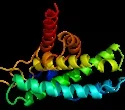
When people get older or have advanced cancer, skeletal muscular atrophy or wasting is a terrible and frequently irreversible syndrome. As proteins break down more quickly than they are replaced, wasting of the muscles results.
Muscle atrophy, according to a University of Houston researcher, may be influenced by the interaction of the Fn14 gene, a receptor for the little pro-inflammatory protein or cytokine TWEAK. They trigger a number of intracellular signaling pathways once they are joined together. The National Institute of Arthritis and Musculoskeletal and Skin Disease has awarded Kumar $2,758,100 to study the function of the TWEAK/Fn14 system in skeletal muscle wasting during aging and cancer cachexia. The study’s objective is to find the pathways that could potentially cause the creation of novel therapeutic strategies for preventing muscle wasting.
Co-investigators on the project include Preethi Gunaratne, a Moore’s Professor in the Department of Biology & Biochemistry at the University of Houston, and Michal Johnson, an associate professor in the Department of Pharmaceutical Health Outcomes and Policy (PHOP).
In both in vitro and in vivo studies, Kumar has discovered that TWEAK slows the rate of protein synthesis in skeletal muscle. Furthermore, the TWEAK-Fn14 system controls ER stress, which interferes with regular cell processes when proteins are improperly folded or conformed. This results in the ER stress-induced unfolded protein response, which activates several pathways (UPR). Three sensors that are located in the ER membrane start the unfolded protein response.





